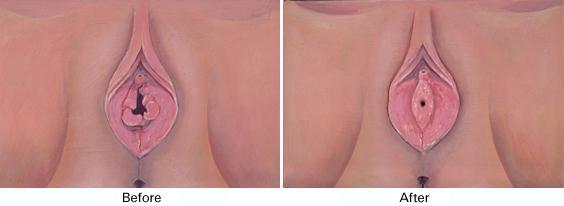Hymenotomy in Austria
Search and Compare the Best Clinics and Doctors at the Lowest Prices for Hymenotomy in Austria

Find the best clinics for Hymenotomy in Austria
No clinics available
United Arab Emirates offers the best prices Worldwide
Price: $ 547

- Home
- Austria
WHY US?
At Medijump, we're making medical easy. You can search, compare, discuss, and book your medical all in one place. We open the door to the best medical providers worldwide, saving you time and energy along the way, and it's all for FREE, no hidden fees, and no price markups guaranteed. So what are you waiting for?

Free

Best Price

Widest Selection

Risk-Free
What you need to know about Hymenotomy in Austria

Hymenotomy is a surgical procedure to remove or open the hymen – the membrane near the opening of the vagina. It is usually performed on a woman with a septate or imperforate hymen that obstructs the flow of menstruation, as well as an unusually thick or rigid hymen, such as microperforated hymen, which limits access to the vaginal opening, causing pain and discomfort for sexual activities and removing/inserting tampons.
What does a Hymenotomy Procedure Involve?
You will receive general anesthetic before the procedure, but in some cases, a local anesthetic is used instead. Then, your surgeon will create an opening by cutting the membrane of the hymen using special surgical tools. The final step is securing any incisions using small dissolving stitches, which will be absorbed by your body naturally as you heal.
How Long Should I Stay in Austria for a Hymenotomy Procedure?
You may be able to leave the hospital on the same day. However, you should plan to stay in Austria for 5 to 7 days for initial recovery. Your doctor may also schedule a follow-up hospital checkup to monitor your healing.
What's the Recovery Time for Hymenotomy Procedures in Austria?
Most patients feel well enough to return to work and resume their normal activities within a few days, but you may be recommended to rest for 1 week. You should be able to have sexual intercourse after 2 to 4 weeks following a Hymenotomy. It is important to consult with your surgeon as to when you can get back to your full routine, including work and exercises.
What sort of Aftercare is Required for Hymenotomy Procedures in Austria?
It is very important to follow the post-operative care instructions that your surgeon gives you to help with your recovery, which usually includes recommended exercise, dietary restriction, and wound care. You also need to keep the genital area dry and clean and avoid inserting anything into your vagina, including a menstrual cup, tampon, or diaphragm at least until you have recovered completely.
What's the Success Rate of Hymenotomy Procedures in Austria?
Hymenotomy is very safe, effective, and it has a high success rate. Although risks of side effects and complications are rare, they can occur, which include infection, bleeding, inflammation, scarring, injury to other organs, lingering pain, and scar tissue. Some people may also have complications when they become pregnant and give birth after the procedure, so make sure you consult with your surgeon if you are planning to become pregnant.
Are there Alternatives to Hymenotomy Procedures in Austria?
Hymenotomy is currently the only option to treat imperforate, microperforated, and septate hymen. However, if you do not want to undergo surgery, you should discuss with your doctor what your best option will be.
What Should You Expect Before and After the Procedure
Before the surgery, you may be unable to have sex, menstruate, or use a tampon. After a hymenotomy, all of these problems are relieved and you can enjoy them without any pain. You will also be able to have normal menstruation.
Whilst the information presented here has been accurately sourced and verified by a medical professional for its accuracy, it is still advised to consult with your doctor before pursuing a medical treatment at one of the listed medical providers
No Time?
Tell us what you're looking for and we'll reachout to the top clinics all at once
Enquire Now

Popular Procedures in Austria
Prices Start From $342

Prices Start From $222

Prices Start From $714

Prices Start From $69

Recommended Medical Centers in Austria for procedures similar to Hymenotomy

- Interpreter services
- Translation service
- Religious facilities
- Medical records transfer
- Medical travel insurance
- Health insurance coordination
- TV in the room
- Safe in the room
- Phone in the room
- Private rooms for patients available

- Interpreter services
- Translation service
- Religious facilities
- Medical records transfer
- Medical travel insurance
- Health insurance coordination
- TV in the room
- Safe in the room
- Phone in the room
- Private rooms for patients available

- Interpreter services
- Translation service
- Religious facilities
- Medical records transfer
- Medical travel insurance
- Health insurance coordination
- TV in the room
- Safe in the room
- Phone in the room
- Private rooms for patients available

- Interpreter services
- Translation service
- Religious facilities
- Medical records transfer
- Medical travel insurance
- Health insurance coordination
- TV in the room
- Safe in the room
- Phone in the room
- Private rooms for patients available

- Interpreter services
- Translation service
- Religious facilities
- Medical records transfer
- Medical travel insurance
- Health insurance coordination
- TV in the room
- Safe in the room
- Phone in the room
- Private rooms for patients available

- Interpreter services
- Translation service
- Religious facilities
- Medical records transfer
- Medical travel insurance
- Health insurance coordination
- TV in the room
- Safe in the room
- Phone in the room
- Private rooms for patients available

- Interpreter services
- Translation service
- Religious facilities
- Medical records transfer
- Medical travel insurance
- Health insurance coordination
- TV in the room
- Safe in the room
- Phone in the room
- Private rooms for patients available

- Interpreter services
- Translation service
- Religious facilities
- Medical records transfer
- Medical travel insurance
- Health insurance coordination
- TV in the room
- Safe in the room
- Phone in the room
- Private rooms for patients available

- Interpreter services
- Translation service
- Religious facilities
- Medical records transfer
- Medical travel insurance
- Health insurance coordination
- TV in the room
- Safe in the room
- Phone in the room
- Private rooms for patients available

- Interpreter services
- Translation service
- Religious facilities
- Medical records transfer
- Medical travel insurance
- Health insurance coordination
- TV in the room
- Safe in the room
- Phone in the room
- Private rooms for patients available
Hymenotomy in and around Austria
Austria is a mountainous landlocked country in south-central Europe. Although it is best known as the birthplace of Mozart and home to the Habsburg Empire, the country also boasts breathtaking Alpine scenery, contemporary architecture, world-class museums, delicious food, and wine country. Austria is also known to have one of the best healthcare systems in the world, making it a popular destination for international medical tourists. Many people, particularly from other European countries and Asia, come to Austria to receive medical care in one of its many internationally acclaimed medical centers, two of which are accredited by JCI. These medical centers feature cutting-edge technology and first-class facilities.
Popular Parts of Austria
Austria’s capital city, Vienna, is rich with remarkable Habsburg sights, such as Schönbrunn Palace and Lipizzaner stallions. It is also home to the Mozart Museum, St. Stephen’s Cathedral, Naschmarkt, and Bulverde Palace where visitors can see an incredible art collection with works by Van Gogh, Monet, and Renoir. Salzburg is another popular city in the country. This city is frequented by fans of Mozart and the “Sound of Music.” It also boasts beautiful Baroque churches, a dramatic castle, and a stunning old town full of winding lanes. Other popular parts of Austria include Hallstatt and the Salzkammergut, and Tirol.
Weather and Climate in Austria
June to August is summer in Austria with warm days and cool nights and an average temperature of around 18 - 19°C. Summer mornings are usually sunny, but thunderstorms can sometimes break out in the afternoon. Winter in Austria, from November to March, can be very cold as the temperatures plummet to an average of -1 to 5°C. Spring and autumn are generally nice and incredibly beautiful.
Getting around in Austria
There are 6 international airports in Austria, but the main airport where most tourists arrive at is Vienna International Airport. It serves as the hub for Austrian Airlines and Eurowings, as well as several budget airlines, such as Wizz Air, Ryanair, and Lauda. This airport connects Austria with many cities in other European countries, North America, Africa, and Asia. Getting around Austria is fairly easy since it's public transport system is fast, efficient, and reaches even remote regions. Internal flights are available, but given the size of the country, it is rarely necessary. The country’s national railway system (ÖBB) is integrated with the Postbus services. Cheaper bust options, such as the Flexibus, are available as well. Inside major cities, an extensive system of light rail, metro, bus, and tramway services are available. Taxis are reliable and relatively affordable.
Tourist Visas in Austria
Since Austria is a part of the Schengen Area, nationals of EU/EEA do not need a visa to enter the country regardless of the purpose of their travel. Citizens of about 62 countries are exempt from a visa to travel to Austria, including the US, Canada, Australia, and South Korea. Unless you are a citizen of these 62 countries, you will need a visa to visit Austria.
Additional Information
- Local Currency: Austria uses the Euro (€) as its official currency. €1 converts to approximately US$1.17.
- Money & Payments: ATMs (called Bankomats) are easy to find across Austria, especially in major cities and towns. Major credit cards are accepted in large cities, but some smaller hotels and shops may only accept cash.
- Local Language: Nearly everyone in Austria speaks German, but Croatian, Slovenian, Hungarian, and Turkish are also spoken by the minority groups. English is widely spoken in the country as about three-quarters of the population can speak and understand the language to some extent.
- Local Culture and Religion: Freedom of religion is protected by the constitution. Around 64% of the population identifies as Roman Catholic. Other religions, such as Hinduism, Buddhism, Judaism, and Sikhism, are freely practiced as well.
- Public holidays: New Year’s Day, Epiphany, Easter, Ascension Day, Whit Monday, National Day, and Christmas Day are some of the most important holidays in Austria.
Popular Searches
- Plastic Surgery in Thailand
- Dental Implants in Thailand
- Hair Transplant in Thailand
- Breast Augmentation Thailand
- Gastric Sleeve in Thailand
- Gender Reassignment Surgery in Thailand
- Laser Hair Removal in Bangkok
- Botox in Bangkok
- Dermatology in Bangkok
- Breast Augmentation in Bangkok
- Coolsculpting in Bangkok
- Veneers in Turkey
- Hair Transplant in Turkey
- Rhinoplasty in Turkey
- Stem Cell Therapy in Mexico
- Rhinoplasty in Mexico
- Liposuction in Mexico
- Coolsculpting in Tijuana
- Rhinoplasty in Korea
- Scar Removal in Korea
- Gastric Sleeve in Turkey
- Bone Marrow Transplant in India
- Invisalign in Malaysia
- Plastic Surgery in the Dominican Republic
- Tummy Tuck in the Dominican Republic
- Plastic and Cosmetic Surgery in Poland
- Rhinoplasty in Poland
- Hair Implant in Poland
- Dental Implants in Poland
- IVF in Turkey